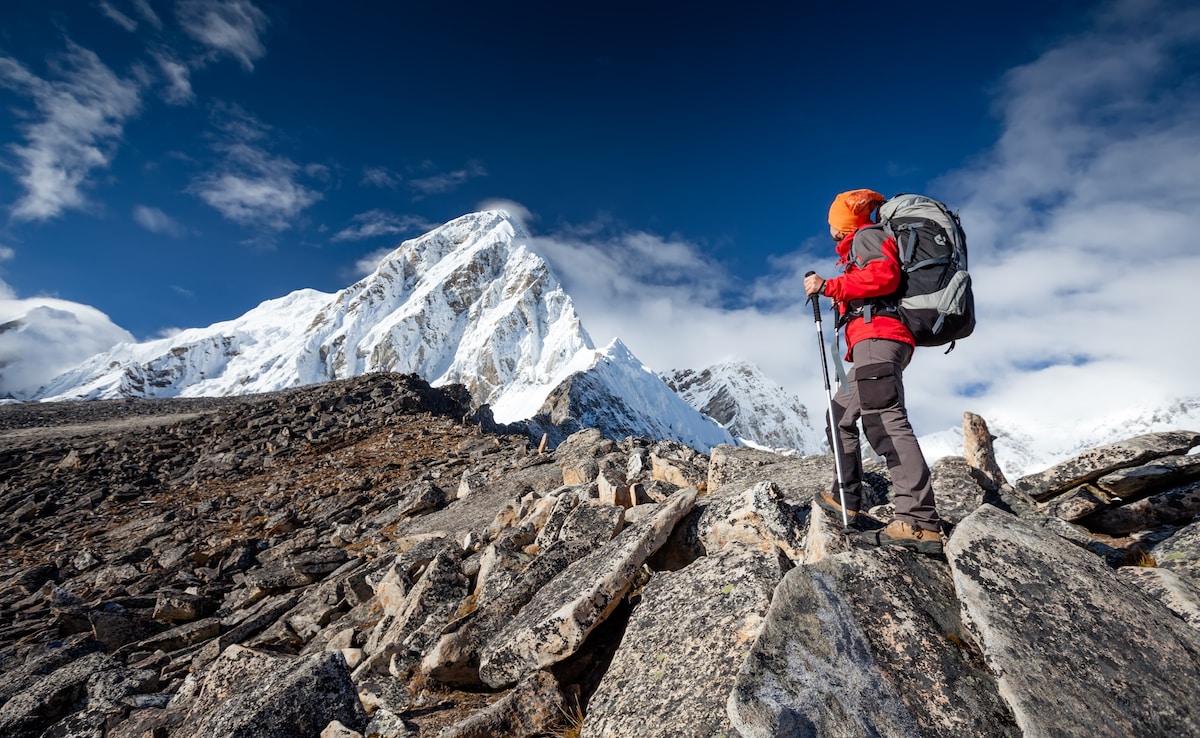Trekking Prepared: Five Essential Mind Tricks for Outdoor Enthusiasts
Embarking on a challenging trek can be as much a test of mental resilience as it is of physical stamina. When hiking high into remote mountain ranges, many trekkers find themselves battling internal thoughts that can detract from the beauty surrounding them. Preparing one’s mind is crucial for enjoying the journey and overcoming the inevitable obstacles that arise.
In this article, we delve into five impactful strategies that can help you train your brain, ensuring a fulfilling and rewarding trekking experience. Understanding these mental techniques is vital for who are setting off to explore nature’s wonders—whether you’re an amateur hiker or an experienced mountaineer.
Who, What, Where, When, Why, and How of Trekking Preparation
**Who** can benefit from mental training? Anyone preparing for a trek—whether solo adventurers or group hikers—can greatly enhance their experience.
**What** does mental training involve? It encompasses strengthening your mindset to handle challenges during the trek, from fatigue and discomfort to weather uncertainties and navigation struggles.
**Where** should you apply this training? Techniques can be practiced anywhere—before your trek, in your local park, or even during the hike itself.
**When** should mental preparation start? Ideally, begin weeks in advance of your trek.
**Why** is mental preparation important? Just as physical fitness is necessary for enduring tough treks, mental resilience can significantly enhance your ability to enjoy the journey and push through tough moments.
**How** can this mental training be achieved? It involves a combination of awareness, self-reflection, positivity, and mindfulness practices that foster readiness for the trek ahead.
Tips to Train Your Brain Before a Challenging Trek
Acclimatizing your mind can be just as effective as training your body. Here are five actionable tips to help you boost your mental toughness and ensure a rewarding trekking experience:
1. Equip Yourself with Knowledge
Knowledge is your strongest ally when facing the unknown. Researching your chosen route through blogs, vlogs, and weather forecasts can significantly alleviate anxiety. Understanding the terrain, weather conditions, and potential challenges equips you with the confidence needed for your trek.
As you prepare, delve into the rich history of the trails, including wildlife and geological wonders you could encounter. Embrace the power of neuroplasticity—by continually learning and exposing your mind to the trek, you allow your brain to adapt and thrive, making the experience less daunting.
2. Identify Your Motivation
Your purpose for trekking can significantly influence your mental fortitude. Are you seeking solitude, adventure, or perhaps a fitness challenge? Pinpointing your reason for trekking serves as a guiding light, providing motivation when fatigue threatens your resolve.
Whether it’s the thrill of exploration or personal growth through testing your limits, your driving force will keep you grounded when overcoming challenges feels overwhelming.
3. Cultivate a Positive Mindset
Negativity can quickly sap your energy on the trail. The moment your mind begins to spiral into thoughts of giving up or doubting your ability, breathe deeply and redirect your focus. Engage in positive self-talk, encouraging yourself with affirmations that bolster your confidence.
Another effective technique is to set small, achievable goals during your trek. Challenge yourself to take a sip of water after every 30 steps or reward yourself with a scenic break every few minutes. Redirecting your thoughts towards positive outcomes helps maintain a cohesive mind-body connection.
4. Embrace Discomfort
Physical discomfort is a guaranteed companion on treks. Instead of resisting it, learn to embrace it. Allow yourself to feel the pain but remind yourself that it is a temporary sensation that many trekkers endure.
The acceptance of discomfort can act as a mental release, allowing you to move forward when the going gets tough. Harnessing this tenacity can help you tackle challenging sections with confidence. Remember, the shared experience of discomfort is often what fosters camaraderie among trekkers.
5. Engage in Mindfulness and Meditation
Anxiety can overshadow your experience, but mindfulness practices can help you regain focus. Practice being present, whether it’s through breathing exercises or immersing yourself in the natural sounds that surround you.
Training your mind to stay engaged can enhance your appreciation of the trek. The rhythm of your breath can calm your mind, grounding you amidst the vastness of the wilderness. Deep breathing techniques can help you maintain focus, allowing for a sense of tranquility while navigating challenging terrain.
By integrating these five mental training tips into your pre-trek preparations, you will be well-equipped to face the unique challenges that accompany high-altitude adventures. Trekking is not solely about reaching the summit; it is about savoring each step of the journey. With a strong mind, you can truly enjoy the beauty of nature while building resilience for the future.
Don’t forget to check your gear and plan accordingly! Whether you are hiking up local hills or traversing mountainous terrains, may your journey be filled with discovery and unforgettable moments in the great outdoors.


